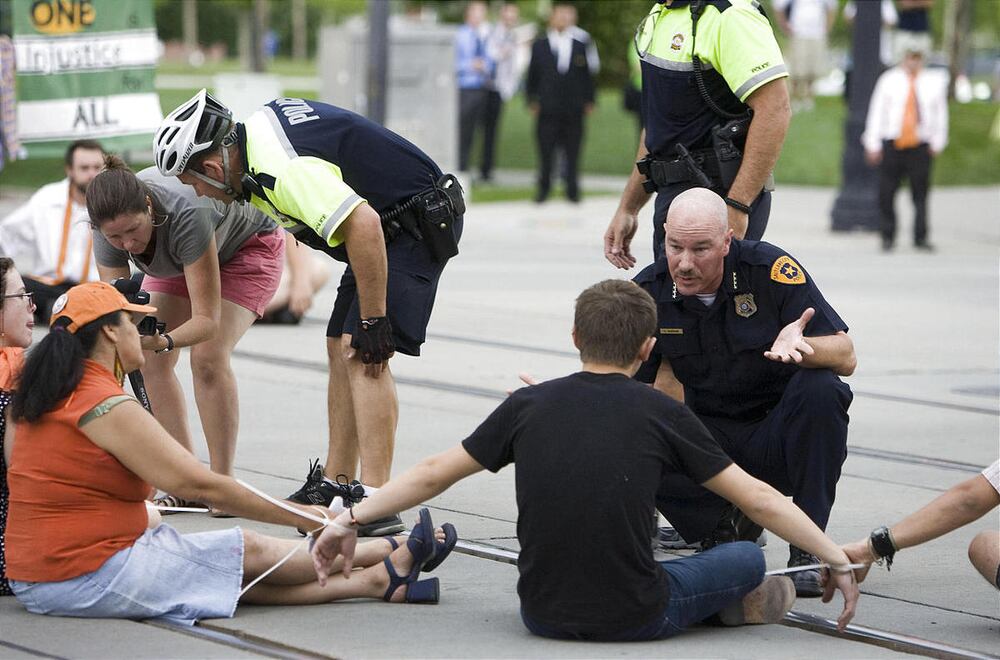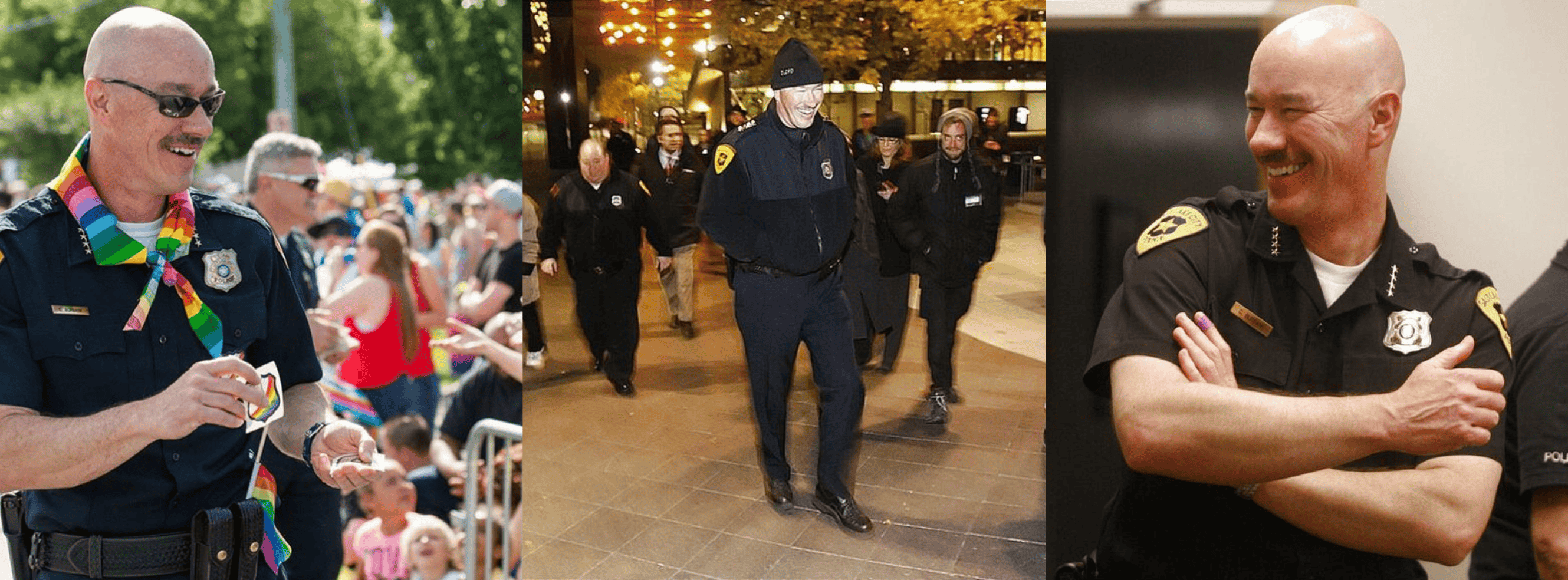
Critical Concepts
Chris’ approach to public safety and community engagement is grounded in a commitment to respectful, transparent, and effective law enforcement. His unique philosophy has been shaped by years of on-the-ground experience and a dedication to meaningful change.
1. Respectful policing and de-escalation
Chris believes that law enforcement can be both assertive and compassionate. During the Occupy Salt Lake City protests, while other cities experienced clashes between police and protestors, Burbank chose a non-aggressive approach. Addressing protestors calmly, he offered choices instead of force, resulting in a peaceful resolution. Similarly, during the Tim DeChristopher sentencing protests, he provided demonstrators with options, leading to non-violent outcomes praised by protestors themselves.
“Changing the bias of individuals is hard. Changing policy, changing practice is easy.”
2. Policing root causes, not symptoms
Chris’ reforms also target deeper issues that often go ignored. Recognizing that citations for minor offenses, like jaywalking, often unfairly target specific populations, he halted the issuance of such tickets around the Salt Lake City homeless shelter. His view is that policies that prioritize rehabilitation over punishment better serve both the public and the police.
“Extensive misdemeanors as a deterrent to serious crime is not effective and simply serves to incarcerate more individuals for nonserious offenses.”
3. Immigration reform and inclusive policing
A staunch advocate for fair and unbiased law enforcement, Chris has spoken out against cross-deputization of police officers as immigration agents. He believes that this approach erodes public trust and deters immigrant communities from seeking police assistance. At a 2010 meeting with Attorney General Eric Holder, he argued that local immigration enforcement creates “a class of victims” vulnerable to exploitation and crime.
“If we stand apart from our community… mistrust [fuels] crime.”
4. Gun violence prevention and responsible ownership
Chris advocates for balanced, effective measures that protect communities without compromising individual rights. In a 2013 meeting with President Obama, he supported “reasonable, responsible gun ownership” as a means to address public safety concerns. This balanced stance underlines his focus on practical solutions that respect constitutional rights.
“If there is some way that we can save even one life or prevent a tragedy, we owe it to the nation to consider it.”
5. Systemic policy change
Chris believes that systemic change, rather than isolated efforts, will best improve public safety. He argues that it’s not only the police who must reform but the entire system that enables current practices. Following incidents of excessive force, Chris called for clear standards and national oversight to prevent biases from influencing enforcement decisions.
“If we cannot respond as a police agency to a 13-year-old child who has autism without shooting him — I don’t know if we should be in this business.”
6. Commitment to trust and transparency
In his role as both a former chief and national advocate, Chris has continually highlighted the role of trust in effective policing. He emphasizes that police departments must cultivate trust within their communities, which can only be achieved through openness and consistency.
“Building trust between law enforcement and the community can lead to more effective policing and public safety.”
